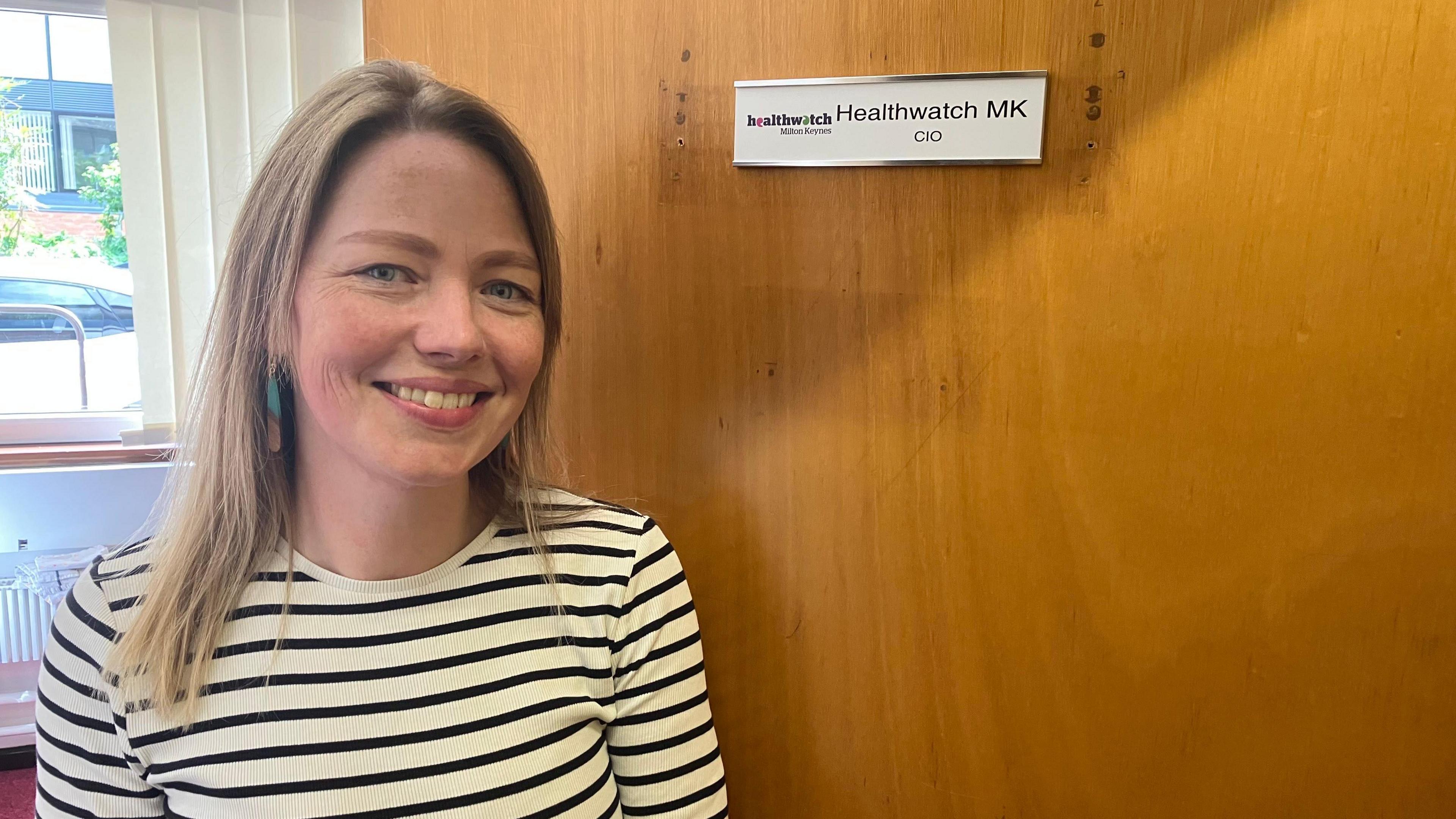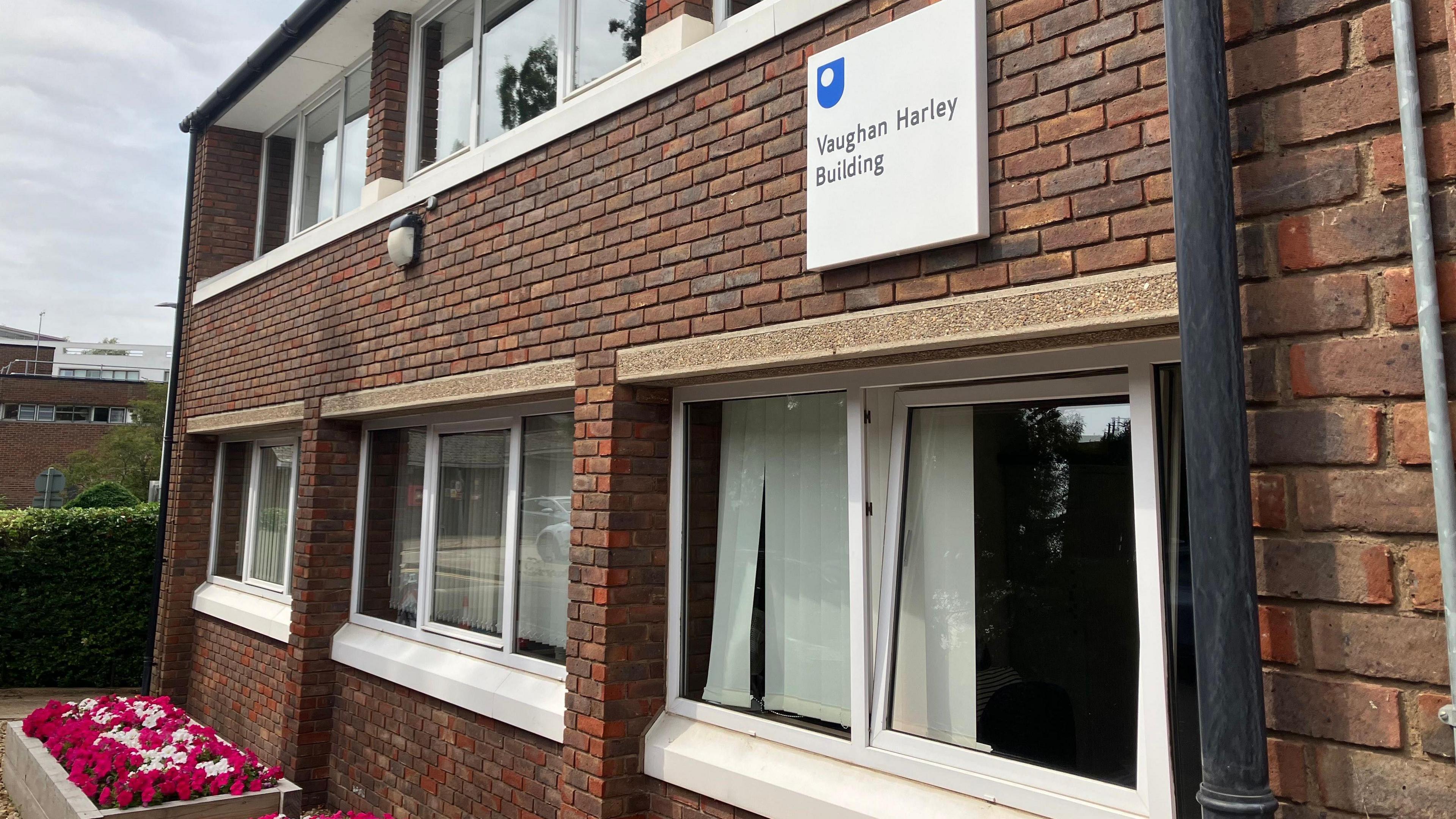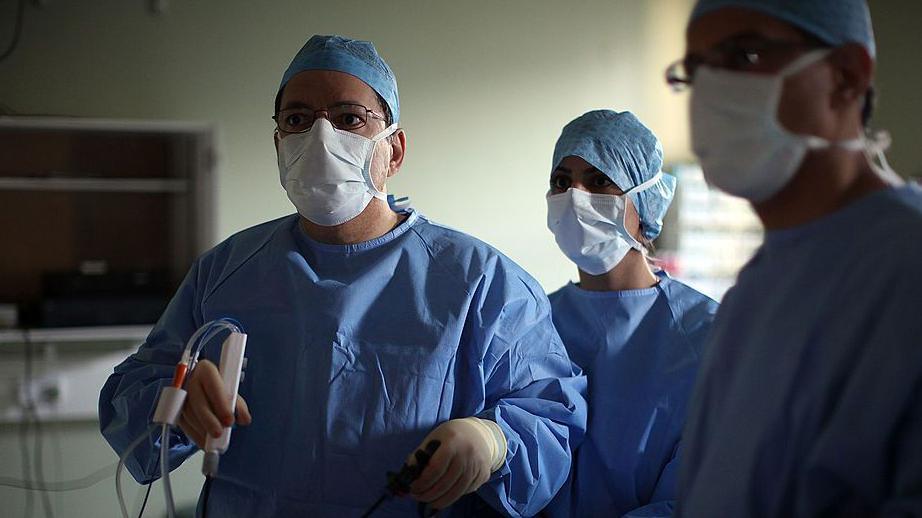Decision to close watchdog is disheartening - CEO

Maxine Taffetani said she was worried that if the service was closed the most vulnerable in the city would be affected
- Published
A woman in charge of a patient watchdog that will be closed as part of the government's new health strategy has said she was "disheartened" by the decision.
Maxine Taffetani is chief executive officer of Healthwatch Milton Keynes, one of 153 local boards set to be abolished as part of the 10 Year Health Plan for England, which followed a national review into patient safety, external.
Ms Taffetani told the BBC she had hoped the regulator's "work would be recognised and more investment would be made into local services".
When the news was announced in June, Health Secretary Wes Streeting said the NHS needed "more doers and fewer checkers".
In 2012 six local boards were set up in Bedfordshire, Hertfordshire and Buckinghamshire, to act as an independent voice for patients.
Healthwatch Milton Keynes receives £173,500 per year from Milton Keynes City Council and the Department of Health and Social Care (DHSC).
Ms Taffetani said she was now worried "some of the most vulnerable people in the city would not have access to the same pathways to get help in future".
Healthwatch Milton Keynes said it has helped people without ID or proof of address to register with a GP, after it was found to be a problem for people in temporary accommodation or experiencing homelessness.
The regulator also worked with surgeries to develop a GP registration card which influenced NHS England to produce a national right to register card, Ms Taffetani said.

Healthwatch Milton Keynes moved into offices at the Open University in April
A formal date for the service to end is not known, as the government will have to change legislation in the Care Act first, but Mrs Taffetani said it was "a matter of waiting for the government to start making those decisions".
She thought any closure could be sometime in 2026 or 2027, but "until that point hopefully we are business as usual".
In future, patients will be encouraged to make greater use of the NHS smartphone app to leave feedback on the care they receive and there would be an increased role for the Care Quality Commission, and more direct communication with integrated care boards (ICB) and local authorities.
The government said it hoped the changes would reduce bureaucracy but Ms Taffetani was concerned it might have the opposite effect.
She said the ICB for Milton Keynes also covered Luton and Bedfordshire, making it a "distanced body through which to get your voices heard and issues resolved".
Most of the local boards, including Milton Keynes, have signed an open letter to the Health Secretary, external, urging the government to reconsider the proposals.
In a statement, a spokesperson for the DHSC acknowledged the successes of Healthwatch Milton Keynes, but added: "These changes will make things clearer for patients and give them a stronger voice."
They added that the "10 Year Health Plan will bring patient care into the 21st Century, using tech and AI to make checks more rigorous and efficient and ensure we never turn a blind eye to failure".
Get in touch
Do you have a story suggestion for Beds, Herts & Bucks?
Follow Beds, Herts and Bucks news on BBC Sounds, Facebook, external, Instagram, external and X, external.
Related topics
- Published28 June
